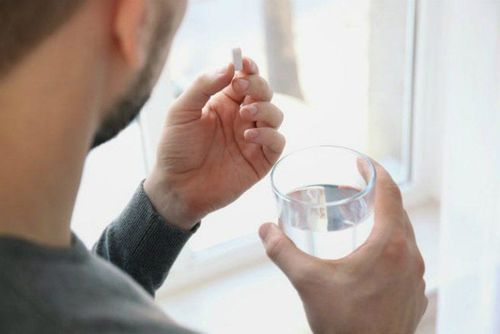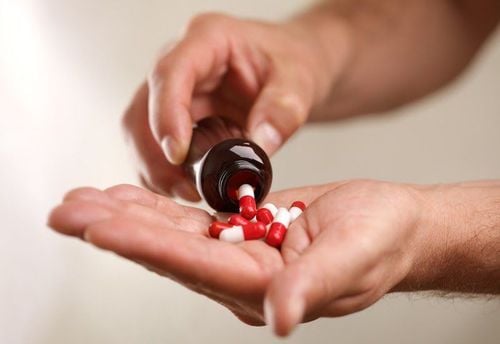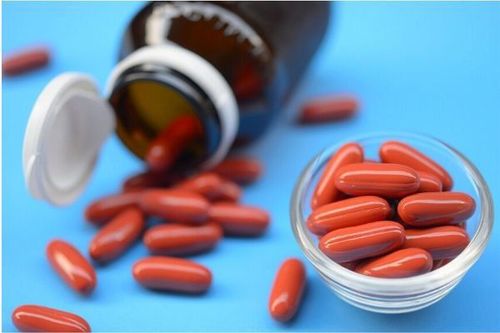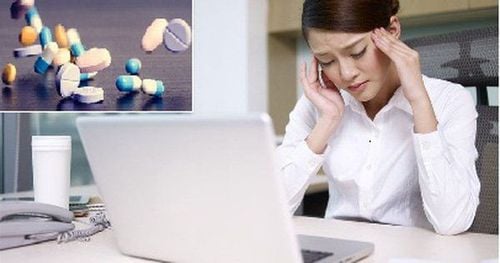This is an automatically translated article.
The most common side effects of acupuncture are what everyone wants such as better sleep, more energy, mental clarity, better digestion and less stress. And indeed, acupuncture has other less pleasant side effects. These additional side effects are much rarer than the most common side effects of acupuncture. Here are the side effects associated with acupuncture you should be aware of.
1. Is acupuncture safe?
Acupuncture is a traditional Chinese medicine practice that originated thousands of years ago. Acupuncture is based on the premise that the flow of vital energy or "qi" in the body is blocked or disturbed, which can cause health problems. Acupuncturists will insert hair-thin needles into specific acupuncture points throughout the body to restore the flow of qi, balance the body's energies, stimulate healing, and promote relaxation.
Some theories suggest that acupuncture works by stimulating the release of endorphins, the body's natural pain-relieving chemicals. Another theory is that acupuncture affects the autonomic nervous system (which controls body functions) and releases chemicals that regulate blood flow and pressure, reduce inflammation, and calm the brain. .
Acupuncture is used in many cases such as: Mood swings, arthritis, chronic pain, insomnia, migraine, nausea, sciatica, sinusitis, tinnitus... Today People prefer acupuncture because it has fewer side effects and can even work quickly.
However, studies have also shown that this treatment may cause mild pain, bleeding, or bruising. These adverse reactions are minor and transient, but they occur in approximately 10% of patients and are therefore relatively common.
Slightly more serious side effects include fainting, dizziness, and vomiting, but these are less common and are more commonly associated with needle anxiety. While most patients can accept the risks as an unsurprising consequence of a needle stick, there are two serious side effects to consider.
First is the infection . There have been several documented cases of patients suffering from diseases such as hepatitis. The Journal of Hepatology documented how 35 out of 366 patients contracted hepatitis B from an acupuncture clinic in the US. The infection is caused by the reuse of needles that have not been properly disinfected, and part of the problem may be due to the Chinese tradition of storing needles in alcohol solution, which is not enough to protect against the hepatitis virus. . The second is that the needle can puncture a nerve or major organ. For example, a needle at the base of the skull can lead to brain damage, and more than 60 cases of lung perforation have been reported. Most disturbingly, there was a report of an acupuncturist who inserted a needle into an Austrian patient's chest, piercing her heart and killing her.
Usually, it's perfectly safe to insert a needle at this point because the sternum protects the heart, but one in 20 people has a hole in the bone that can't be felt or seen. Although acupuncture carries some common and serious risks, it is most important to emphasize that the common risks are not serious and the serious risks are uncommon. It is important for you to choose the right treatment method.
Furthermore, serious risks can be minimized by seeing a medically trained acupuncturist who has adequate knowledge of anatomy and the use of disposable needles. Some acupuncturists direct the needle after it has been placed, by rotating or rotating the needle, moving it up and down, or using a machine with a small electrical pulse or current.
Experts also say that the resulting tingling, numbness, heaviness or pain is what happens when you want to achieve the results of the treatment. But remember to tell your doctor when you have the above symptoms.
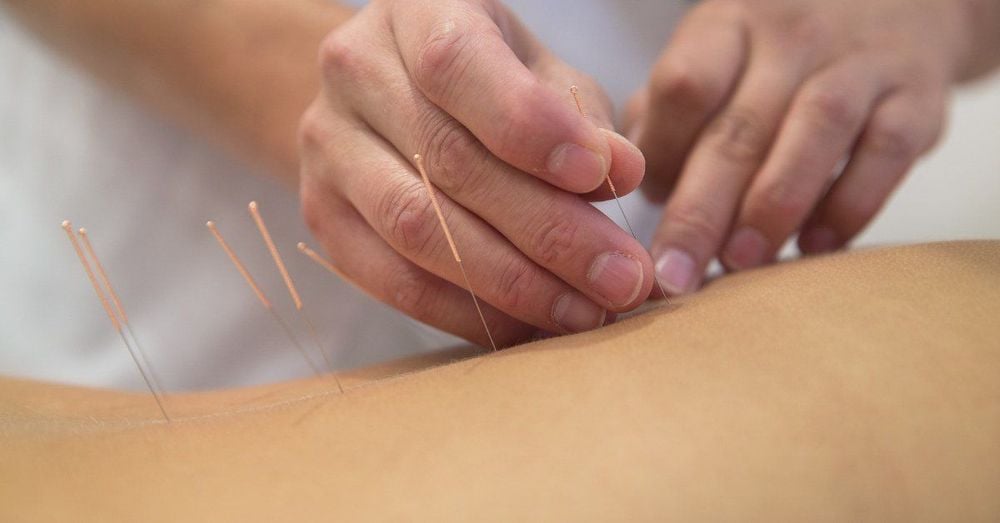
Châm cứu là một phương pháp y học cổ truyền của Trung Quốc có nguồn gốc từ hàng ngàn năm trước
2. Complications of acupuncture that you should know
The side effects of acupuncture are not life-threatening, and all are generally safe. However, we should also know the common side effects so that once you have experienced them, you have nothing to worry about.
2.1. Tired
Some people feel exhausted after acupuncture. This usually goes away a few hours after treatment, but for some people it lasts up to three days. It's quite common when you're just starting out with acupuncture and you don't have to worry about it. It is really a warning sign that your body needs rest and you need to take care of it. Acupuncture alone cannot heal you completely, you also need other care.
2.2. Hurt
Body parts that are pricked by the needle may feel a little sore after the treatment. This occurs commonly in sensitive areas such as the hands, feet, or large intestine. Usually, the soreness goes away 24 hours after treatment, but in some cases it can last for several days. Muscle twitching is also a common acupuncture practice.
2.3. Bruises
Mild bruising at the needle site is also common after acupuncture. This happens because blood is drawn at the site where the needle entered the skin. The bruise lasts longer than the soreness, but you still have nothing to worry about.
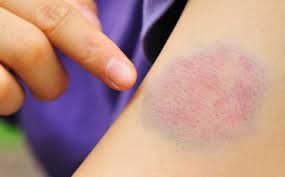
Châm cứu có thể dẫn đến bầm tím
2.4. Floating
Few people also feel lightheaded, nauseous, dizzy after treatment. If you feel the same, then take a little rest after acupuncture. Do not get up immediately after acupuncture, lie down on the acupuncture table for a while and take a deep breath. Also, to avoid this, always snack on something before your workout.
2.5. Outburst of emotions
Sometimes people cry or feel too emotional during acupuncture. This does not happen because the treatment is too painful. That's because of the release of some energy, which can lead to emotional outbursts. Acupuncture helps heal your physical and mental problems, so emotional release is also a sign that the treatment is working.
2.6. Some serious complications
According to a report published in the journal Scientific Reports, acupuncture can cause serious side effects, such as infection, nerve and blood vessel damage, complications from broken needles or fragments. remnants, perforation of organs, central nervous system or spinal cord, hemorrhage, and other visceral and tissue injuries resulting in death.
Perforation of the pleura from a needle puncture can lead to atelectasis. People who know there is a rare anatomical variant known as the sternum fossa (a hole in the breastbone) are at increased risk of pulmonary perforation or pericarditis.
Acupuncture may not be suitable for people with certain health conditions, Risk of bleeding or bruising is increased if you have a bleeding disorder or take blood thinners, such as warfarin.
But keep in mind, acupuncture should not be used as a substitute for standard care. Its avoiding or delaying standard care can have serious consequences. And if you have trouble controlling pain or other health problems with conventional methods, acupuncture may be an option to try. As long as you check with your doctor first whether you are suitable or not and you need to choose an acupuncturist for you who has expertise and experience in this field, it is better to perform acupuncture at a hospital. .
Traditional Medicine Unit - Vinmec International General Hospital was established based on the quintessence and inheritance of two traditional and modern medicine backgrounds in examination and treatment, with the aim of bringing the best options. choose the best for the customer. This is the bridge between traditional medicine and modern medicine. With traditional and natural medicinal methods, along with non-medicinal treatments such as nourishment, acupuncture, massage, acupressure, electro-acupuncture. The unit is also an appropriate address for customers to improve health, prevent and treat chronic diseases of the era.
Please dial HOTLINE for more information or register for an appointment HERE. Download MyVinmec app to make appointments faster and to manage your bookings easily.
References: acupuncture.org.uk, dailymail.co.uk, verywellhealth.com




